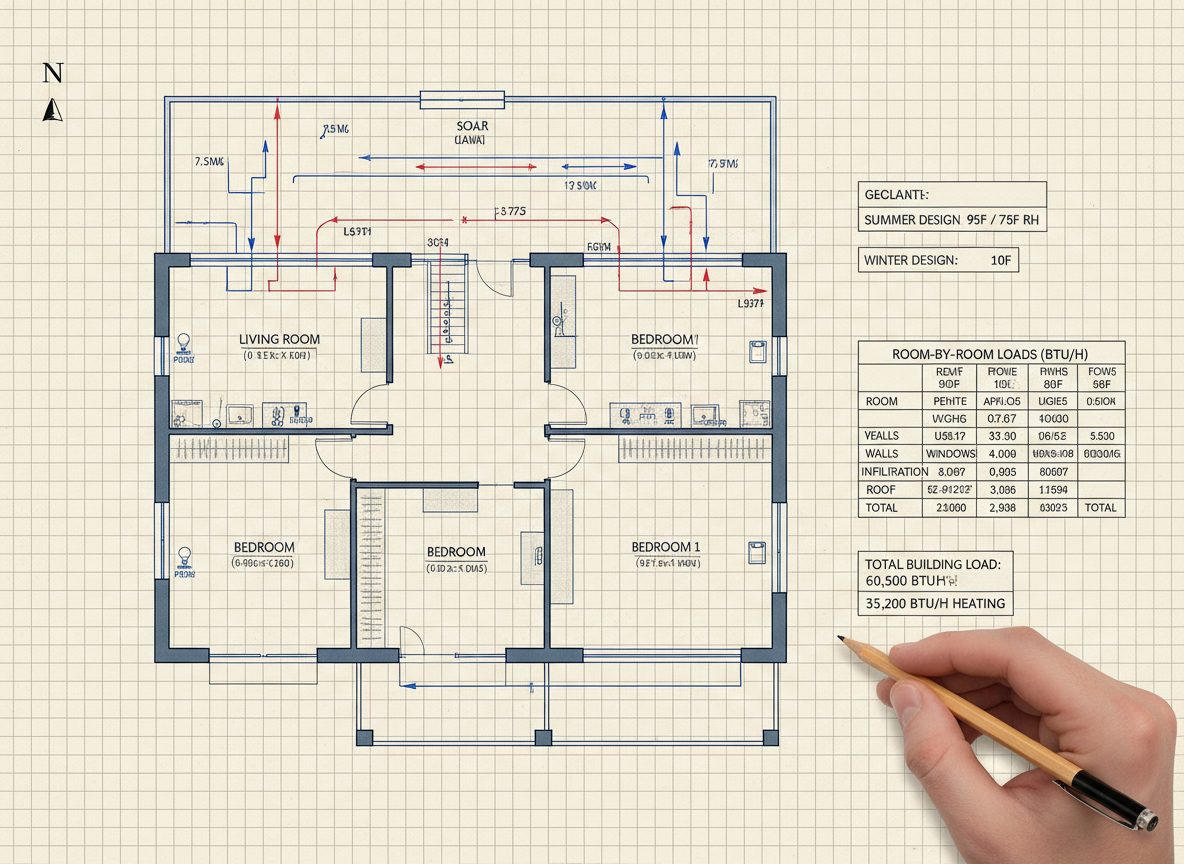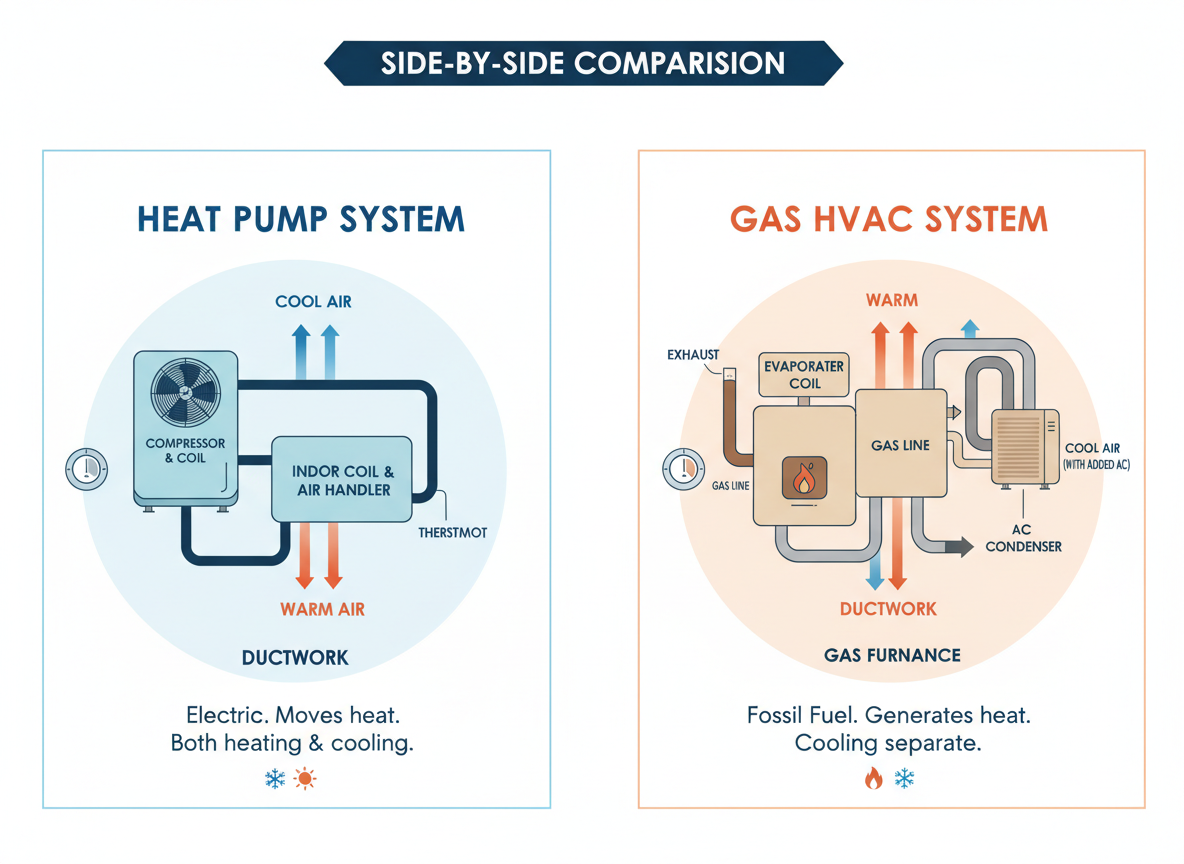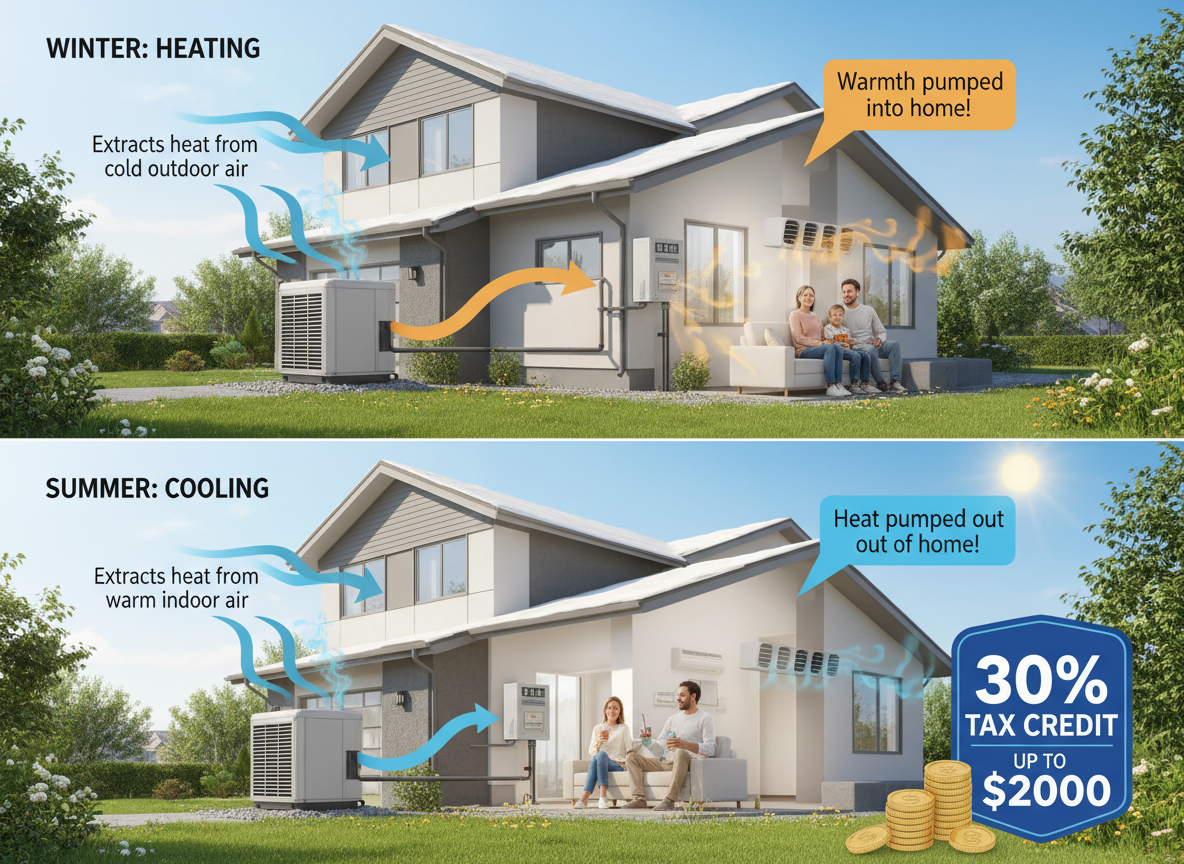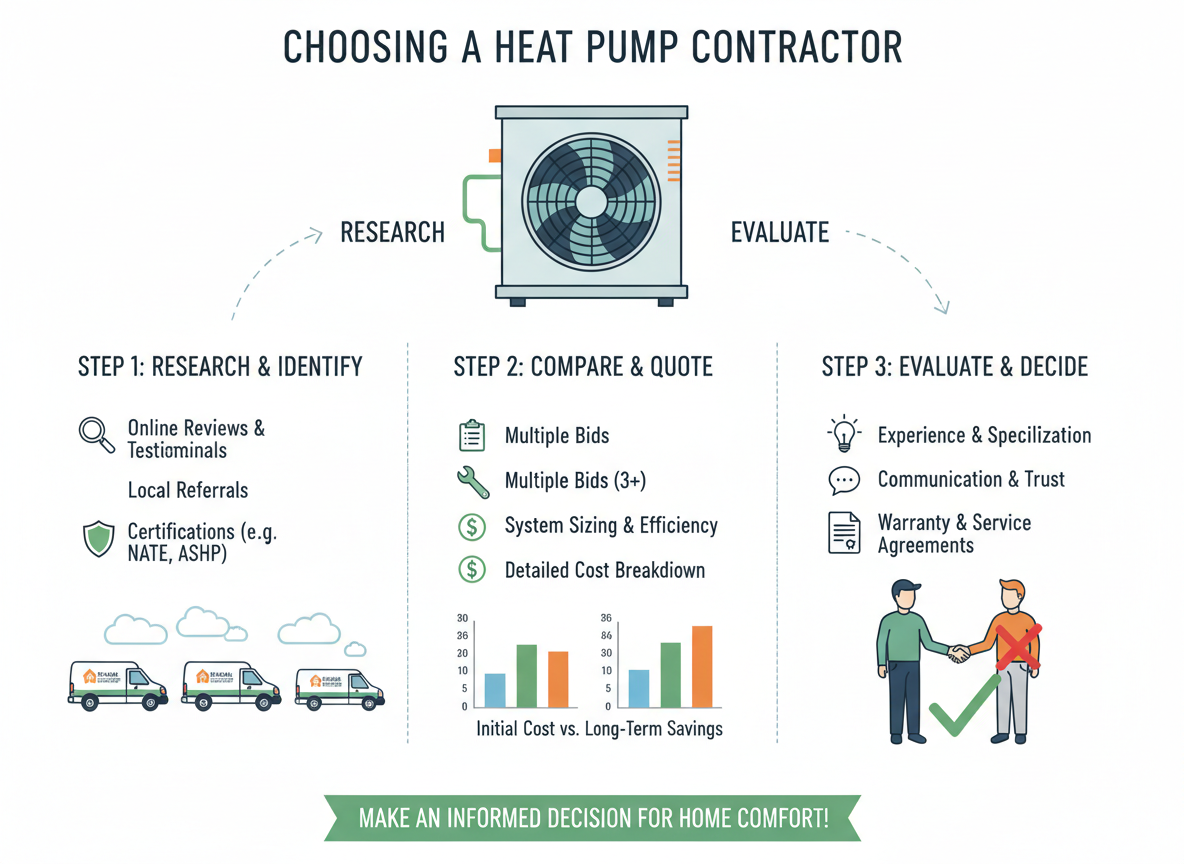
How Does a Heat Pump Work?
A split heat pump offers greater efficiency, so its no wonder many homeowners consider installing one in their home. If you are thinking of investing in a heat pump system it is important to understand what it is and how it works. This essential information can help you determine whether a heat pump is the HVAC system most suitable for your home.
What is a Heat Pump?
A split system heat pump is a type of HVAC system divided between an outdoor unit and an indoor unit. The units are connected through the home by copper piping used for the refrigerant. The outdoor unit contains a coil that acts as both a heat exchanger and compressor. The indoor unit has a coil and a fan. The fan in the indoor unit is responsible for circulating the air through the home’s ventilation system. The refrigerant that passes through the copper piping can both cool the home and absorb heat from the air.
How Does a Heat Pump Work?
A heat pump uses energy to move heat from one place to another. It goes through a compression and exchange process to increase the air temperature and then reverses the process to decrease the temperature. The reversing feature is what makes a heat pump different from other HVAC systems. Heat pumps use two types of compressors: two speed and scroll.
The two-speed compressor is responsible for helping the pump reach an ideal temperature. Whereas the scroll compressor, compresses the refrigerant to warm up the air. A heat pump also houses variable-speed motors on the fans to help maintain air flow into the home. Like with any other HVAC equipment, heat pumps require routine maintenance.
Effectiveness During Winter
A split system heat pump is an air conditioning unit that reverses the cooling process in order to warm up the home. During the winter refrigerant absorbs heat from the air moving over the coil in the outdoor unit. The refrigerant then heats up by moving through the compressor also in the outdoor unit.
The now heated refrigerant passes into the indoor coil via the copper piping. The fan in the indoor unit pulls the heated air through a grill. From the grill the heated air moves through the indoor unit coil. The heated refrigerant remains in the copper piping and passes over the coils. As the fan blows air over the coils, the heated air then is distributed into your home through the duct system. Keep in mind, that heat pumps are more common in milder climates where its rare that temperatures would drop below freezing.
Effectiveness During Summer
The reverse process happens to cool your home during the summer. Heat is moved across the indoor unit’s coil. The refrigerant in the coil absorbs the heat, removing the moisture within the home as well. The refrigerant then moves the heat through the copper piping to the compressor in the outdoor unit, then passes through the coil and ultimately is released.
Contact LA Heating and Air
Always contact a professional if you are experiencing any issues with your heat pump. Give us a call today at 818-341-3406 or contact us online to schedule service or maintenance. If you are thinking of installing or replacing a Heat Pump we can schedule a free consultation to discuss your options. We are here to help you give us a call today!
What is A Split Heat Pump Related Posts?:






















.png)














